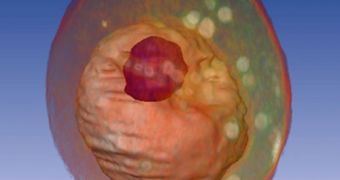In a groundbreaking new study, researchers at the Massachusetts Institute of Technology (MIT) were able to rejuvenate the cells of yeast. This allowed said cells to live up to 100 percent longer, essentially doubling their lifespan.
The work is very interesting because it could lead to a doubling of human lifespan if it can be applied t to our species as well. All human cells have a finite lifespan, which basically means that they can only reproduce a few times before they die.
Interestingly enough, the same correlation does not hold true for human reproductive cells. This particular subset appears to be able to ignore the lifespan limit. What this means in real life is that kids have the same life expectancy regardless of the age their parents have when they are conceived.
Scientist have been trying to figure out how this reset takes place in reproductive cells, but have thus far been unable to pinpoint an exact mechanism. The MIT team says that it discovered a gene that appears to be responsible for this process in yeast.
This means that at least now experts have something to go on, as they try to establish whether a gene is responsible for the same process in humans. To male things even more promising, the MIT team determined that shutting down the yeast gene doubled cells' lifespans.
In a paper published in the June 24 issue of the top journal Science, the MIT group says that follow-up studies on humans could lead to the development of new approaches to rejuvenating human cells or creating pluripotent stem cells.
“If we can identify which genes reverse aging, we can start engineering ways to express them in normal cells,” explains MIT biology professor Angelika Amon, who is also a member of the David H. Koch Institute for Integrative Cancer Research.
Amon was the senior author of the Science paper, while Koch Institute postdoctoral researcher Elçin Ünal was the lead author. “Nobody really knows what aging is. We know all these things happen, but we don’t know what will eventually kill a cell or make it sick,” Amon explains.
The researcher and her team identified the gene NDT80 as the primary reason why yeast cells remain youthful. During a stage of cellular division called meiosis, the gene was turned off, and researchers noticed how the cell's lifespan was doubled.
This gene essentially “took an old cell and made it young again,” Amon concludes.

 14 DAY TRIAL //
14 DAY TRIAL //